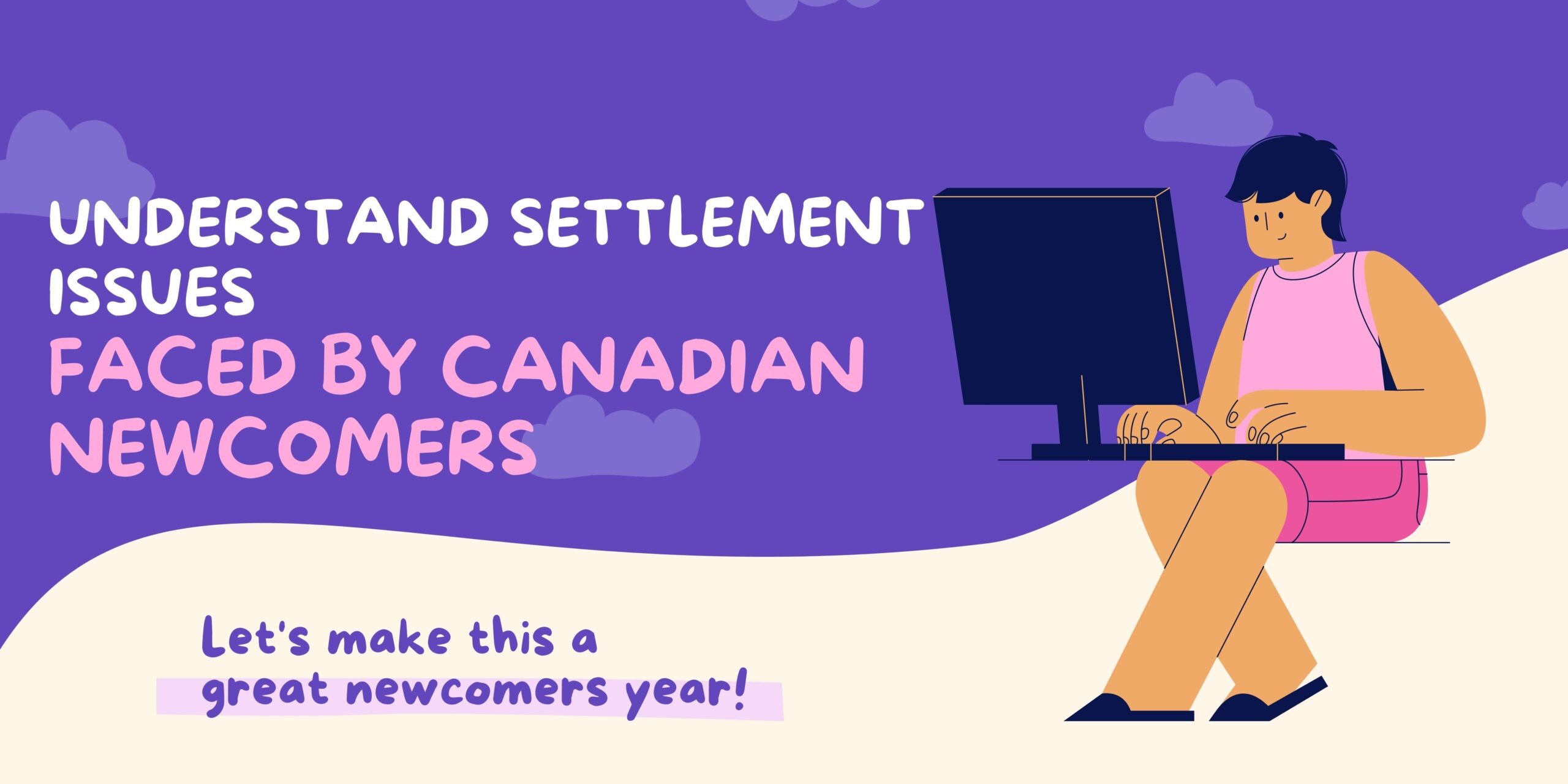A complete guide to understand settlement issues faced by Canadian newcomers

So, you’ve finally arrived in Canada, the land that offers plenty of jobs for newcomers and your adventure begins now. Because, several logistical, practical, and administrative difficulties need to be resolved. This training manual is intended for all newcomers, whether they are immigrants or refugees. Job hunting for immigrants is not as simple as it appears, therefore an individual must address settling concerns in each vertical.
Canada is the global hub centre for newcomers looking for the highest-paying positions. Citizenship and Immigration Canada, on the other hand, has made significant efforts in recent years to assist newcomers with settlement concerns. This article serves as a one-stop-shop for solutions. The Canadian government’s services and immigration bodies ensure that a newcomer, whether an immigrant or a refugee, learns the local language, the skills required for the job, the necessary training, and credential assessment, all while making the best use of time, and that settlement issues such as education, insurance, schooling, customs, and taxation are as simple as possible.
Points to remember
There are plenty of newcomers jobs in Canada. However, to work in Canada as a temporary foreign worker, you need a Social Insurance Number (SIN) Card is required to work in Canada as a temporary foreign worker or as a permanent resident. An application for a SIN card must be submitted to Human Resources and Skills Development Canada (HRSDC) together with original documentation verifying identification and status in Canada (e.g., passport and work permit or permanent residency approval/card).
Resource guide
There are plenty of jobs for newcomers in various sectors, but, to get one, you must first focus on this settlement advice. Otherwise, you may find yourself in a difficult situation.
- Healthcare Insurance: Canadian citizens, permanent residents, and those on a work permit for more than six months have access to provincial health insurance. A person must have a card issued by the relevant Ministry of Health for the province in which they intend to reside for at least six months to get care. However, if a person is in Canada on a work permit or has recently arrived as a permanent resident with a three-month waiting period before being eligible for coverage and a card, it is preferable to have private insurance coverage until qualifying for a card. Your client must produce a work permit, passport, and evidence of identity to the appropriate provincial health insurance office to apply for a card. However, because an application can take many months to process, you should apply as soon as you arrive in Canada.
- Customs: For newcomers, Canada is a hotspot for newcomer services. And now that you’ve arrived in the land of maple, you’ll need to keep a few things in mind when it comes to importing personal and household items duty-free and tax-free. Furniture, dinnerware, silverware, appliances, and automobiles are all exempt. The Canadian Border Services Agency may require your client to submit a refundable security deposit if these items are subject to duty and taxes at the time of importation. The following are some of the conditions to be aware of:
- the items cannot be used by a resident of Canada
- B. the person “importing” them in Canada is unable to sell or otherwise dispose of the commodities.
- When the person leaves Canada at the end of their temporary stay, they must take all non-consumable items with them.
To drive a car in Canada, you must be at least 16 years old and have a valid driver’s licence. If you have recently arrived in Canada, you are permitted to drive for at least three months on a temporary international driving permit before requiring a local permit. In addition, the applicant must pass a vision, written, and driving test.
- Driving a vehicle: To drive a car in Canada, you must be at least 16 years old and have a valid driver’s license. If you have recently arrived in Canada, you are permitted to drive for at least three months on a temporary international driving permit before requiring a local permit. In addition, the applicant must pass a vision, written, and driving test.
- Insurance: To operate a vehicle in Canada, you must have insurance. The rest of your insurance is optional. Health insurance is recommended since “public” health care is only available after a three-month waiting period and typically does not cover dental care, medicines, or other “common” medical requirements. Insurance can be bought directly from an insurer or through a broker or agent.
- Financial Services: Your customer will need to establish their identity, status in Canada, the land of maple famous for offering a plethora of jobs for newcomers, and possibly employment to open an account or transact nearly any transaction with a financial institution. A buyer must demonstrate proof of permanent residence in Canada to qualify for a CMHC-backed mortgage. Mortgage brokers and banks will frequently ask just for confirmation that a person is in the process of applying for permanent residence if they are here on a work permit.
- Language services: The government of Canada has launched a new program in which several language classes are available for free. Many English and French school boards and community organizations across Canada, on the other hand, provide language training classes.
- Credential Recognition: Credential recognition is not an act of checking your academic qualifications or professional experience, as many immigrants and refugees believe. However, it is checked during this process that the newcomers’ credentials will need to be reviewed to see if they meet the Canadian standard or if they require additional training, education, or Canadian work experience to find work.






